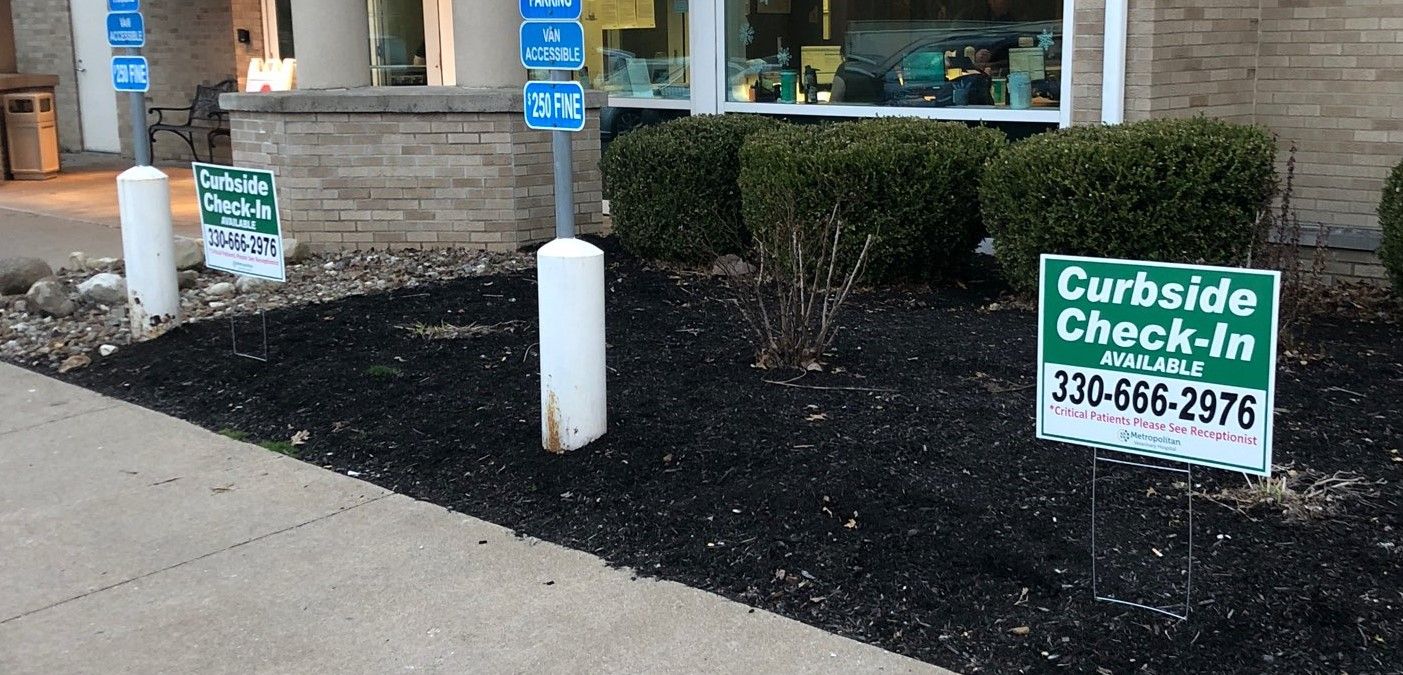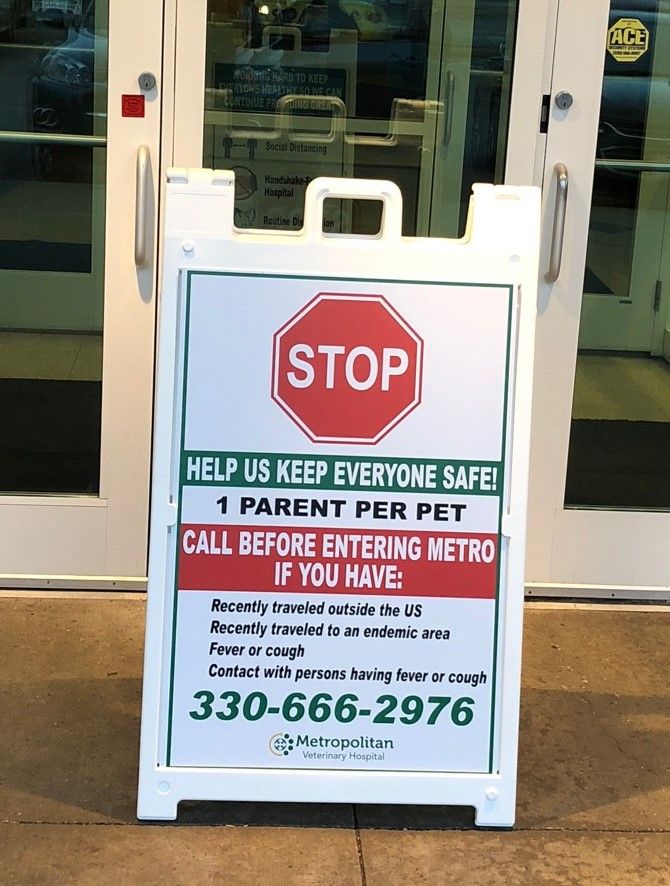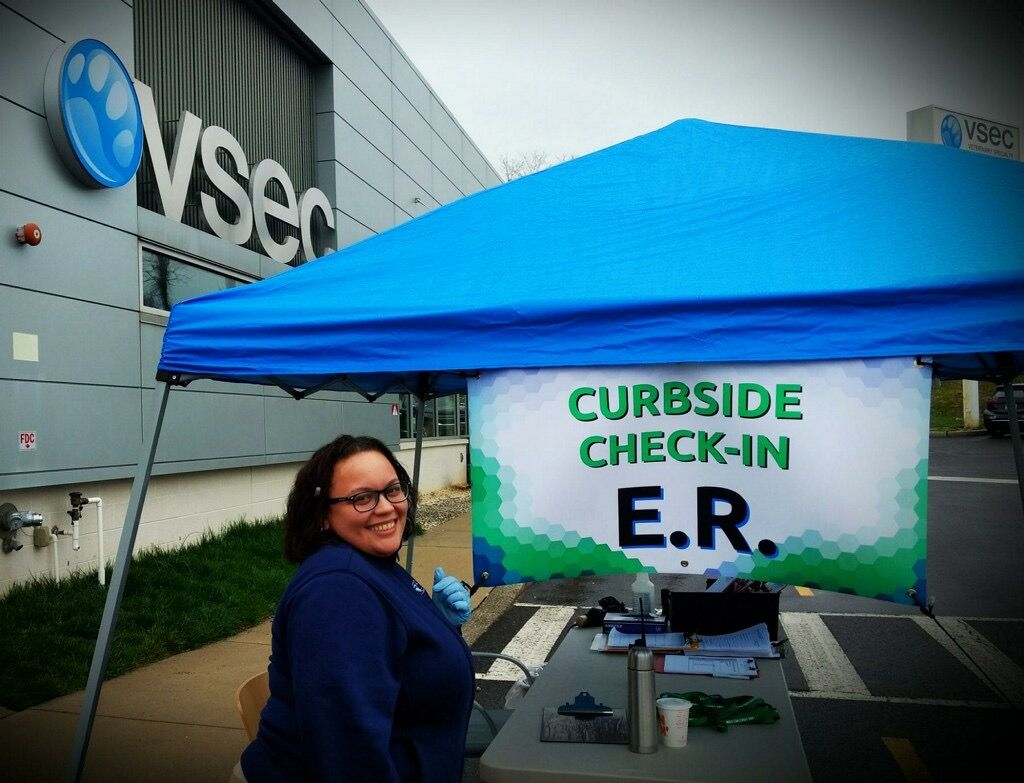Last updated 4/22/2020 10:18AM ET with new information.
COVID-19 has likely made everyone experts on the phrases “flatten the curve” and “social distancing.” If you aren’t yet familiar with these terms, or aren't convinced about the importance of it all, check out Coronavirus and Why We Must Act Now.
But there’s an odd reality to this for us. What we do—caring for our community’s sick and injured animals—is not conducive to shutting down or social distancing.
And so, in the thick of our unprecedented times, I spent the past 48 hours in two very busy 24/7 veterinary emergency rooms.
Why? Because those were my shifts.
When I showed up at sunrise on Friday, about a day after things really began to change across the US, none of us were quite sure what to expect. Would we see no cases? Would people heed reasonable warnings and social distancing recommendations instead of coming to the ER? And where would people rank their pet concerns?
The verdict? Wow. Lameness, toxicities, bite wounds, complex metabolic issues, neoplastic effusions, congestive heart failure, seizures, foreign body ingestions, urethral obstructions, and on and on. You name it, we had it. For sustained periods of time, crossing time zones and shifts, humans are seeking care for their furry loved ones in excess. Anecdotally, I’ve heard from many colleagues in different regions having the same experience.
It's the perfect storm: an entire population at home, with very little else to do, having close contact with their animals. I suspect this might be our new normal for at least a little while, as we contemplate an uncertain future.
Our hospitals must stay open. So what can we do for ourselves and our teams during these unusual times? Full disclosure: I’m no public health expert. But I happened to be isolated with (and married to) one. And, I’ve thought a lot about this over the past few days.
So read on for some thoughts and resources. I hope it helps:
🦄 Uncommon (but Helpful) COVID-19 Resources
- Don’t Panic: COVID-19 Guide (terrific comprehensive resource)
- Pets and Coronavirus (all your Qs) (Dr. Scott Weese)
- Keeping Vet Clinics Safe (clients? staff? masks?) (Dr. Scott Weese)
- Mobile Vets and COVID-19 (Dr. Scott Weese)
- Thoughts from the US’s Wuhan (Veterinary Idealist take)
- COVID-19 Owner Contact Guidelines (Clinician's Brief)
- Official Statement: Vets are Essential Services (AVMA)
- Veterinary Industry Impact Tracker (VetSuccess)
- VIN's Veterinary-Only COVID-19 Homebase (tons of great discussion board links and more updated regularly)
- Remote Life Resources (epic list of great resources from Justworks)
🥰 Helpful Personal Wellness Resources
- Coronavirus and a Guide to Managing Feelings (HBR)
- “Anything mentionable is manageable.” (Mr. Rogers, WAPO)
- Comic exploring COVID-19 (great for adults and kids alike)
- Coronavirus Sanity Guide (for leaders and staff)
- Who moved my cheese? (the book for change in life and work)
👀 Things I’ve Seen Peer Hospitals Doing
- Curbside Check-in/Triage: appointments/med/food refills
- Coronavirus-induced Telemedicine: setting up a Zoom account to allow for easy video/audio with clients
- Using Instinct for Workflow: checklists!
- Virtual Game Night for Your Team!
- Closed waiting rooms (only staff and animals in the building)
- Masks for all staff (handmade or surgical)
- Distancing on shift (spacing out desks)
- Limiting personal staff travel
- Requiring 14 day quarantine for staff who choose to travel
- Having non-clinical staff (admins) work from home
- Having clinical staff using a low/no contact plan with clients
- Cautioning at-risk staff and those over 60 years old to take time off
- Hanging signs about personal hygiene, particularly hand washing and cough/sneeze etiquette
- Creating a client handout/poster
- Taking staff temperatures at the start of shifts
- Cohorting: limiting staff contact to within groups, including limiting to a single location (multilocation centers)
- Disinfecting surfaces/deep cleans
- Covering COVID-19 test costs for staff
- Covering copays for staff
- Starting a listserv for staff in need of supplies
- Reminding staff not to take from hospital supplies (just ask)
- Helping low-income staff with food pickups/childcare
- Limiting vendors/other hospital visitors
- Switching to electronic payment and electronic signature only
- Educating teammates on the importance of social distancing when outside of the hospital / not on shift



🐱 What’s the Consensus on Pets Getting the Novel Coronavirus?
- See this: COVID-19 and Animals FAQ
- And this: VIN News COVID-19 Site
- And this: Veterinary Partner FAQ for Pet Owners
- And this: AVMA FAQ about Coronavirus
🧠 Common Sense Changes
- Prioritize sleep! (watch this right now: Sleep is Your Superpower)
- No more hand shakes, hugs, fist bumps, close proximity
- Disinfect exam rooms between every patient/client
- Disinfect work stations often
- Try to stay 6+ feet away from others
- Wash hands often
- Wear gloves often
- Don’t come to work if you are sick
😷 How to Help Sick Clients with Sick Animals
- Everything you need: AVMA COVID-19 Toolkit
- Encourage a call ahead of time
- Arrange a safe drop-off spot
- Staff should gown/glove/mask (appropriate protective equipment)
- Disinfect towels/carriers left with staff
- Bathe the patient when appropriate
- Leverage digital (telemedicine) to interact with the client
🔨 No-Frills Remote Work Technology Toolkit
- Zoom (zoom.us): Most reliable video chat/screen share program
- Slack (slack.com): Simple/free easy chat program for your team
- Notion (notion.so): Internal team workspace
- Asana (asana.com): Team to-do lists
- Instinct (instinct.vet): Organized care from anywhere
- VetGirl (vetgirlontherun.com): Terrific online CE for teams
- On the Floor at Dove (atdove.org): Robust team education platform
- VIN (vin.com): Need we say more?
🆘 What Else Can I Do?
- Ask your staff what they need in these times.
- Support local (take out food, buy gift cards, donate).
- Support each other. Many staff will deal with personal disruptions and sick loved ones.
- Be patient and kind. Form your community. Be there.
- Staff working from home? Work on those rainy day projects.
- Donate. Blood, food, time, energy, money. You do you.
🧡 What Instinct is Doing
Being a digital product and team, Instinct is built for this.
I’m happy to report that COVID-19 is not (and will not) impact our ability to continue to innovate and support workflow in the most advanced veterinary hospitals on the planet.
We know that tools like Instinct are even more important to have in times like this, giving your teams flexibility and capacity to care for patients from anywhere and with reduced person-to-person contact. Learn more about that here.
What has changed? We are following events closely and have decided to suspend all team travel for 3 weeks in order to promote good citizenship. Limiting undue risk to your hospital teams and our Instinct teammates is a top priority during this time.
Still, over the past few days in particular, our entire team has been working around the clock to ensure we are healthy and prepared to support our hospitals no matter the circumstances.
For hospitals that were expecting us on-site in this time, we’ll be in touch to explain our innovative Virtual Training Program.
All other hospitals can expect business as usual: reliable software, rapid innovation, and shockingly responsive 24/7 support.
Stay healthy, and be kind out there.
Want more info about what other hospitals are doing? See all our articles including Coronavirus Guides here.
